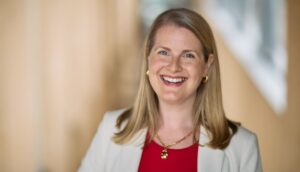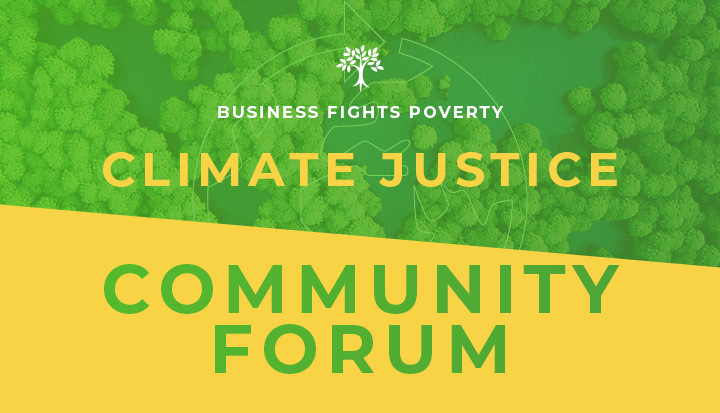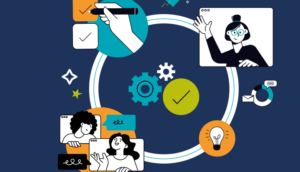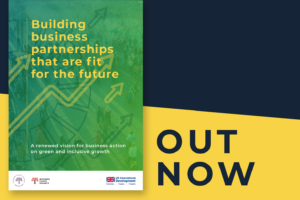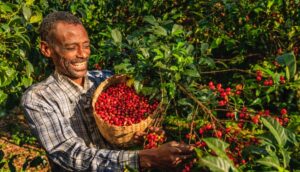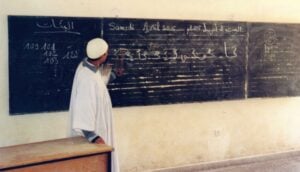Olam International is a Finalist in the Unilever Global Development Award supported by Business Fights Poverty.
We asked them some questions about their programme and the lessons learnt.
Q) How did Olam International’s programme begin?
When we began operating in Côte D’Ivoire in 2008 we had to consider a number of risks. The region was recovering from civil war and the crop yields were very low – for cotton it was under 700 kg per hectare whereas globally the average is 3,000 kg. However, we also saw this as an opportunity for our business and the farmers we work with. Our strategy was to improve the productivity and the traceability of the country’s cotton market to stimulate commercial growth and increase farmers’ incomes.
We began our Société d’Exploitation Cotonnière Olam (SECO) programme with a three pronged approach. Firstly we reached out to farming communities through meetings with village elders and co-operatives as well as word of mouth recommendations from Olam’s employees. This created the motivation to participate in the programme and mutual buy in when we explained the opportunities of our approach.
Next we invested in skills development. Training in agricultural practices was delivered by our extension services team to help farmers minimise crop risks arising from pest infestations or poor weather conditions. The team kept an ongoing record of each farmer’s operations such as land area, yields and loan repayments, to help track progress and mutually manage financial risks.
We established functional literacy centers to improve proficiency among farmers. This included training teachers and providing materials. We also ran ‘Farmer Business Schools’ to provide farmers with training in basic business skills.
Finally, we distributed better varieties of seeds and financed fertilisers and pesticides through the co-operatives. Additional inputs were also offered for farmers to grow maize for household consumption and to help diversify their incomes. A range of finance options were provided including 0% microfinance plus financing for cattle and ploughs.
We worked to improve supply chain management infrastructure by upgrading the road networks and constructing post-harvest facilities such as warehouses.
Q) What impact has the programme had?
There have been many positive impacts for the farmers involved in the programme both through improving the crop yields and therefore the farmer’s annual income, but also in terms or education and health. We began working with 3,000 farmers in Côte d’Ivoire and today are working with 19,569.
By the season 2013/2014, yields had nearly doubled to 1,126kg/ha from 626kg/ha in its first season and Côte d’Ivoire has now become our top-performing country for cotton production. Farmer annual revenues have risen from US$200 in 2009 to US$1,200 per family in 2015, of which US$300 was a direct result of yield improvements and input cost efficiencies.
The literacy centers have provided education to 1,300 farmers and the Farmer Business Schools teaching farmers basic business skills, such as accountancy, have worked with 5,179 farmers.
Our ‘health caravan’ helps combat HIV, AIDS, malaria and other diseases and have reached 6,200 primary beneficiaries in 2015. We founded the health initiative with local NGO ‘Ideal’, after discovering that farmers infected with malaria had 47% lower yields, therefore this programme supports our long-term approach to sustainability.
We have worked to improve 610km of rural roads and built 12 post-harvest storage facilities. These initiatives also help long-term storage of food crops, like maize.
Q) What have you learnt from running this programme and how do you share these lessons?
In our drive to improve the average yield to 1,600kg/ha by 2016, SECO considered financing tractors to speed up cotton cultivation. Tractors need only three hours to plough one hectare of land, whereas farmers with a pair of cattle need three days and those who plough manually take far longer still. SECO piloted a tractor rental financing project, but the model showed the scheme would not work in this instance, so we placed priority on farmers owning cattle to plough and weed to increase their yields.
When we discovered that local farmers were diverting fertiliser intended for cotton plants to maize, a food source on smallholdings and a form of currency, we increased the pre-finance package to include fertiliser for maize cultivation. Opportunities like this can only be spotted because of the full-time presence of an Olam manager on the ground.
Top-level managers from Olam conduct field visits throughout the SECO network to motivate staff and exchange ideas and information. They also engage with government bodies and national and international trade bodies for cotton. They allocate funds to make sure this programme is aligned with our overall sustainability goals and help with the marketing bringing in new investment so the programme can expand.
We have repeated SECO’s model in other regions and now cover approximately 198,000,000ha of cotton and 138,000 farmers across Côte d’Ivoire, Mozambique, Zimbabwe and Zambia. The principles of the programme have also been reproduced for cocoa, cashew, coffee and sesame in Côte d’Ivoire, Nigeria, Ghana, Mozambique, Zimbabwe, Zambia, Cameroon, Indonesia and Colombia, proving that SECO’s inclusive business model can be transferred across products and geographies for mutual benefit.
What Olam International’s CEO said:
“Facing numerous challenges left by civil war, including unproductive land and a dearth of infrastructure, SECO (a wholly owned subsidiary of Olam), with its partners Compaci, CmiA and GIZ, have developed an inclusive business model that has enabled overlooked farming communities in Côte d’Ivoire to transform their livelihoods, while simultaneously growing Olam’s volumes, bottom line and customer base. By taking a long-term approach that addresses commercial, social and environmental needs, we have created a win-win situation for SECO and the smallholders. When they do well, we do well. We urge others to recognise the mutual benefits of such inclusivity.”
Sunny Verghese, Co-Founder and Group CEO, Olam International
The Unilever Global Development Award winner will be announced at the Annual Responsible Business Gala on 11 July. For live updates from the winners please follow#BITCawards.
For more information about the Business in the Community Awards please see


